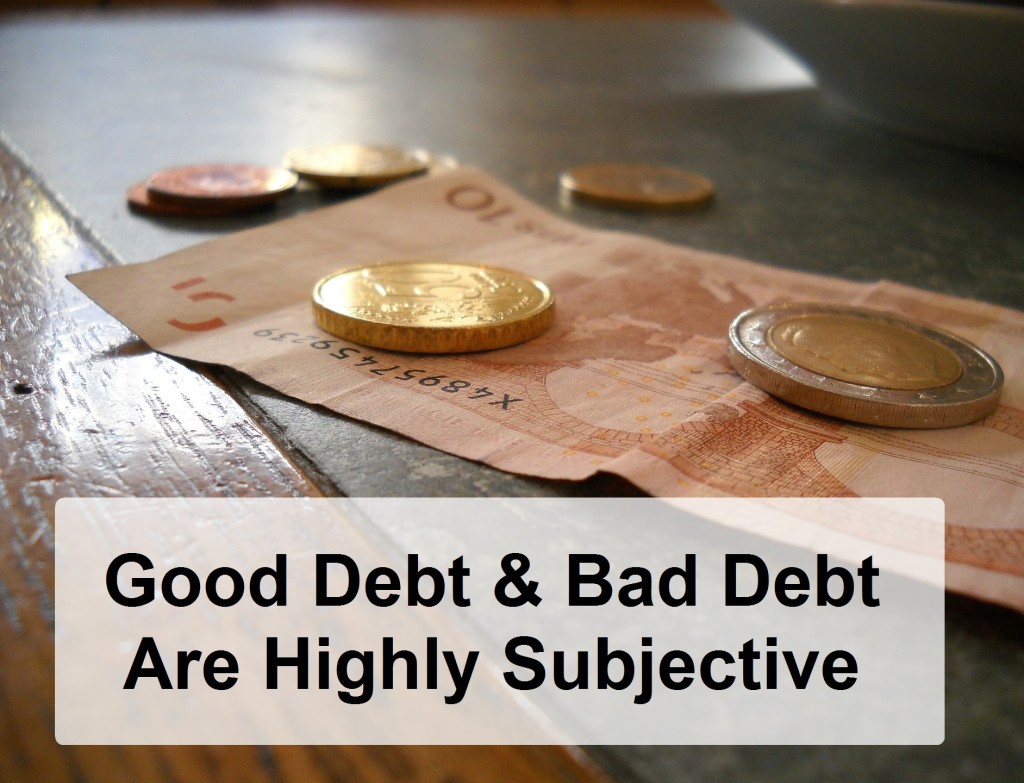We all know the concept of good debt and bad debt:
Good debt = education & housing
Bad debt = consumer debt & cars
Here’s a shocker — good debt and bad debt are highly subjective.
Instead, we should look at good debt as anything that can be used as an investment. While your house is decidedly not an investment, your car might be.
Consider a young real estate agent looking to get into the game. This person has no car and really no desire to get a car since she can walk everywhere. However, clients don’t like walking and it’s imperative for her business that she gets a car. The same holds true for a tradesman who goes into debt for a truck.
“Woohoo! Permission to buy an $80,000 truck!”
Ummm, no. Sure, the car might be an investment in and of itself but there is the tiny concept of marginal utility — the car will eventually reach a point spending more money will result in little or not value. The real estate agent might be fine with a used $15,000 car and the electrician with a $35,000 truck. Anything after that peak price point is money that is spent frivolously, not for investment purposes. The excess debt is bad debt since it’s not being used as an investment.
***
Education, on the other hand, is a bit of a backwards problem. We encourage people to take out loans to pay for college because it’s “good debt” and will help them get a better job. Higher education is not for everyone and convincing your people to get themselves tens of thousands of dollars into debt for a hope of a better life is negligent. There are so many other ways to encourage young adults to become productive members of society — gap years, full-time work, entrepreneurship. High school kids barely know about the alternatives because the mantra of “get an education” is pushed so strongly down their throats.
But I digress. People who are set on going to university should seriously research the market before going into debt. My dream was always to become a lawyer but the economic conditions of Quebec, coupled with the over-abundance of lawyers, ended that dream pretty quickly. My next passion was anthropology. There was nothing I would have rather studied than anthropology but, with a 10+ year PhD program looming over me after I completed my Masters, I was looking at finishing school at 37. From an investment point of view, getting into debt for a BA in Anthropology is as wise as directly lighting money on fire.
***
Every time I read an article about good debt and bad debt, I want to shake the author into oblivion. As a point of personal opinion, I think all debt is bad. Leverage is a magical tool that some people can use extremely effectively but I don’t have the stomach to shoulder hundreds of thousands of dollars in an attempt to get fabulously wealthy. Next time you read an article about how you need to get rid of your bad debt, take a moment to realize that bad debt is subjective.

